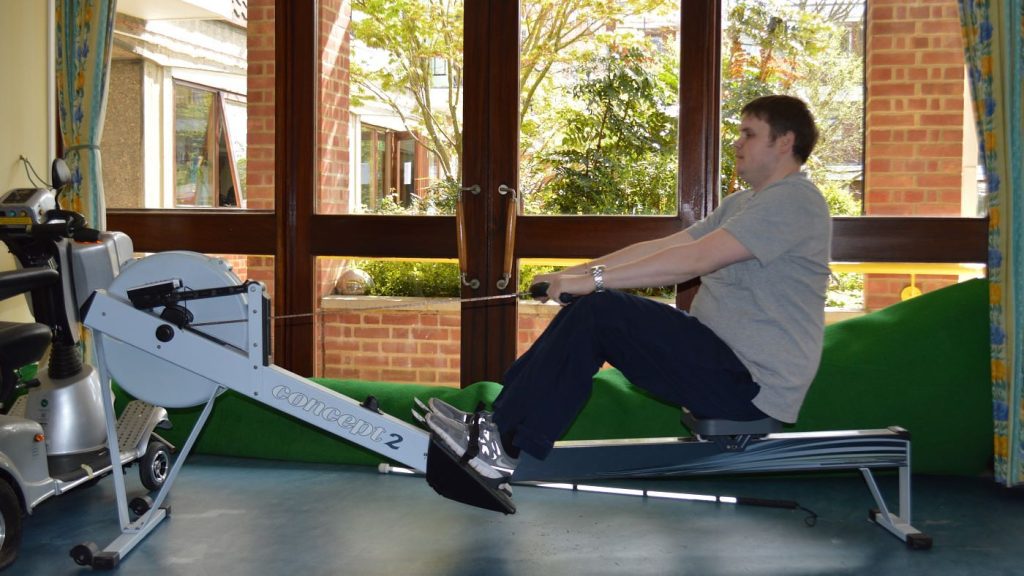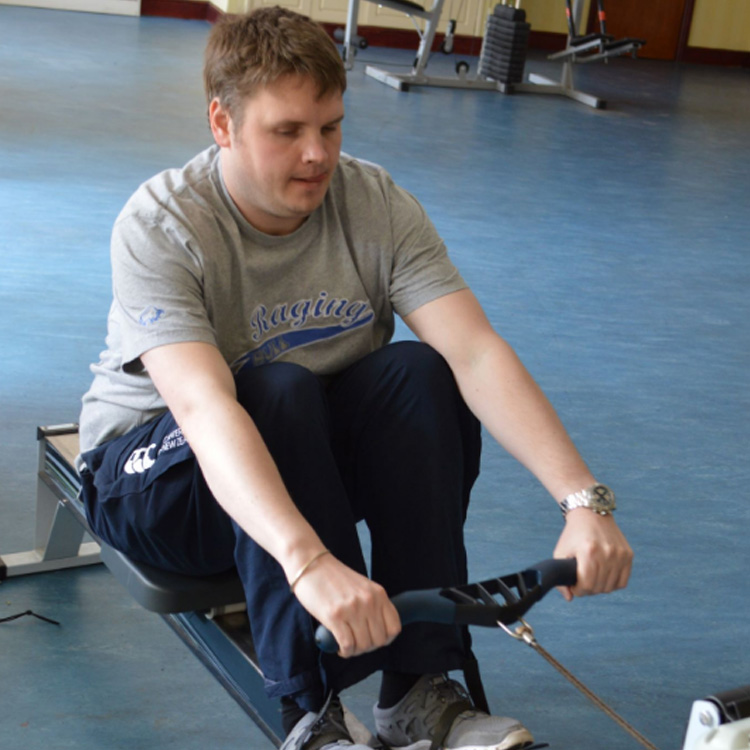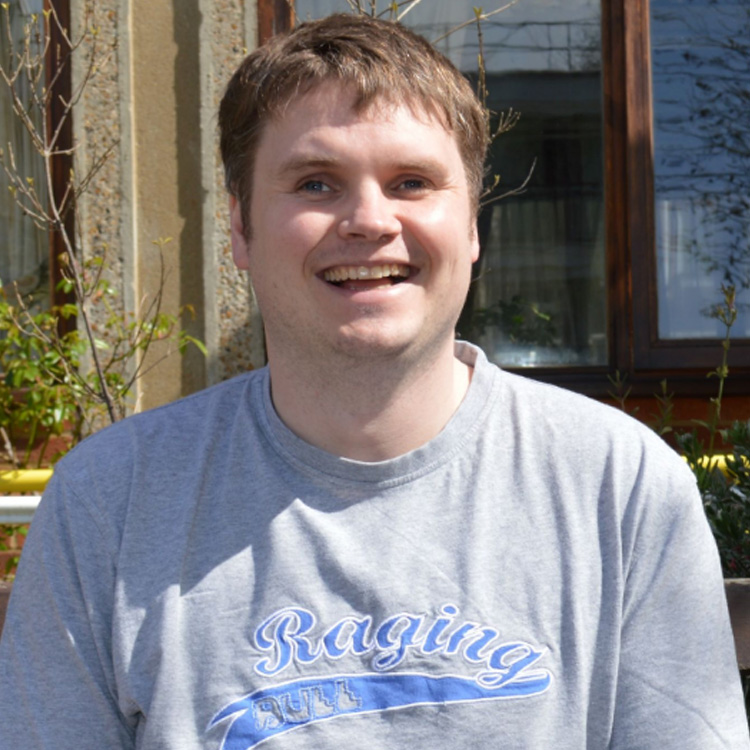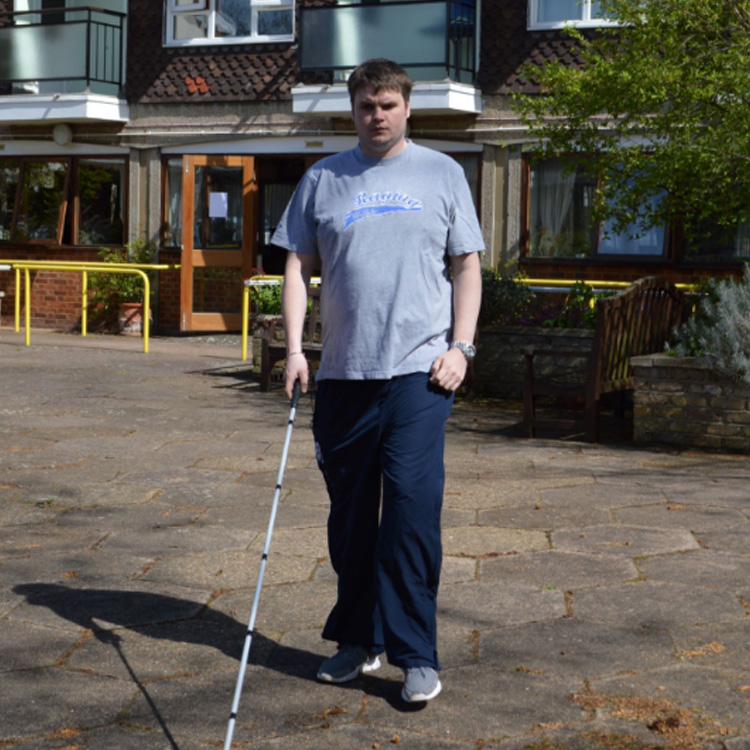Scott's story

My family were actively involved in my rehabilitation. That helped me a lot to come to terms with what had happened.
Scott is thirty. He completed a physiotherapy degree in 2006 and then had a stroke in 2007.
His stroke happened during a night out. He was unconscious on the floor, luckily two student nurses assisted him and called for an ambulance.
Scott spent over two months in intensive care on a ventilator. He then spent one year at a rehabilitation unit. First, he basically couldn’t do anything. He worked hard on re-gaining movement. Because the stroke also affected Scott’s vision, he had to ‘learn to be blind’ and spent some time at the Royal National Institute for the Blind. Scott can distinguish some light and dark only.
“I found it really useful to work with the psychology team to get a grasp and put a perspective on things, to allow those difficult feelings that I was going through not to impact on my rehabilitation and to really allow me to improve.”
Sports have always been a huge part of Scott’s life. After the stroke, Scott had to find sports that don’t rely on vision and he has since taken up rowing. He even tried out for the GB Paralympic team.
In 2012, Scott got an administrator job at a community rehabilitation team: “I didn’t find it too dissimilar from how I would have applied for a job before I had my stroke, which is very much to make sure that you’re applying for a job that suits you as an individual and suits your abilities.”
I was kind of a typical alpha male, ‘I’m fine, there’s nothing wrong with me psychologically’.
Patient Advice
Allow yourself to be you
Scott’s advice: After a year and three months of really intensive medical intervention, I needed a break. When I was on the inpatient unit, weekends were mine to do as I wanted. I think that it’s really important to give yourself time as a patient to really rest and just allow yourself to be you as well, rather than being a patient.
My life with stroke in pictures


